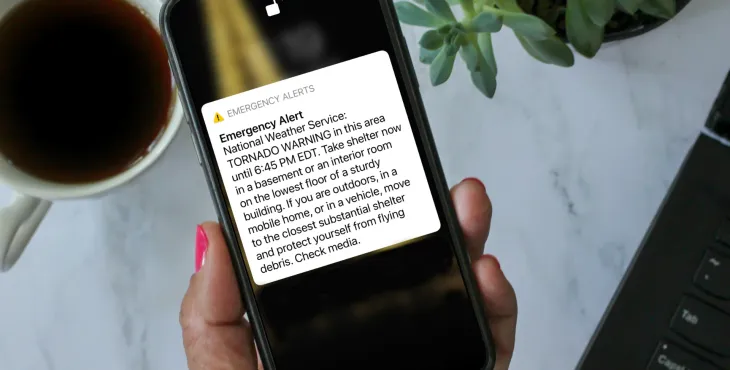
Beware of Scammers Exploiting the New Emergency Alert System
Government to test emergency alert system in nationwide scam
In light of the government's recent announcement of a new emergency alert system, it's crucial to be aware of potential scams and fraudulent activities that may arise as a result. Fraudsters are known for their ability to exploit any new development or system for their own gain, and the new emergency alerts system is no exception. This article will inform you about the potential scams related to the new system and provide tips on how to protect yourself from scammers and fraudsters.

Background of the New Emergency Alerts System:
The government's new emergency alerts system aims to send siren-like alerts to mobile phones during life-threatening situations. The alerts system operates on every mobile phone users devices the UK.
The reason why the UK has decided to implement this system is due to the warning calls from various rescue service such as fire services and partners. It will be strengthening our national resilience to warn UK population of any immediate danger, for example severe weather related events, flood and coastal erosion, or the fire and rescue service.
When activated, devices will vibrate and play a loud siren-like sound for up to 10 seconds, followed by a notification on the home screen. The notification may include phone numbers or website links containing further information about the emergency.
The alerts will be broadcast from cell towers near the emergency, ensuring that they are secure, free to receive, and one-way. People’s privacy will not be affected as the alerts do not reveal anyone’s location or collect personal data.

Potential Scams and How Fraudsters May Exploit the System:
1. Fake alerts: Scammers may send fake emergency alerts to your mobile phone, mimicking the appearance and sound of a genuine alert. These fake alerts may include false information about an emergency or include links to phishing websites designed to steal your personal information.
2. Impersonation: Fraudsters may impersonate government officials or emergency services personnel in phone calls or messages following a genuine alert. They may use this opportunity to extract sensitive information from you or persuade you to transfer funds for fake emergency support or relief.
3. Phishing websites: Cybercriminals could create counterfeit websites that resemble the official gov.uk/alerts site. These sites may prompt users to enter personal information or download malware onto their devices.
4. Malicious apps: Scammers may create malicious applications that appear to be associated with the emergency alert system. These apps could steal your data, send unauthorized messages, or even take control of your device.

How to Protect Yourself from Scammers and Fraudsters:
1. Verify the source: When you receive an alert, check that it is coming from the official emergency alert system. Genuine alerts will not come through as a regular text message, but rather as a unique notification on your device.
2. Avoid clicking on suspicious links: Be cautious about clicking on links provided in emergency alerts. Always verify the legitimacy of the website before entering any personal information. If you're unsure, go directly to the official gov.uk/alerts website.
3. Be skeptical of unsolicited calls: If you receive a call from someone claiming to be a government official or emergency services representative after an alert, don't provide any personal information or agree to transfer funds without verifying the caller's identity.
4. Install a reputable antivirus software: Protect your devices from malware and phishing attempts by installing a reputable antivirus software and keeping it up to date.
5. Report suspicious activity: If you encounter a potential scam related to the emergency alert system, report it to the appropriate authorities, such as Action Fraud or your local police department.
Conclusion:
The new emergency alert system aims to keep the public safe during life-threatening situations. However, it's essential to be vigilant and aware of potential scams and fraudulent activities that may arise as a result. By staying informed about the system, knowing the warning signs of scams, and taking necessary precautions, you can protect yourself from falling victim to fraudsters and scammers. Remember, the key to staying safe is being proactive and informed.